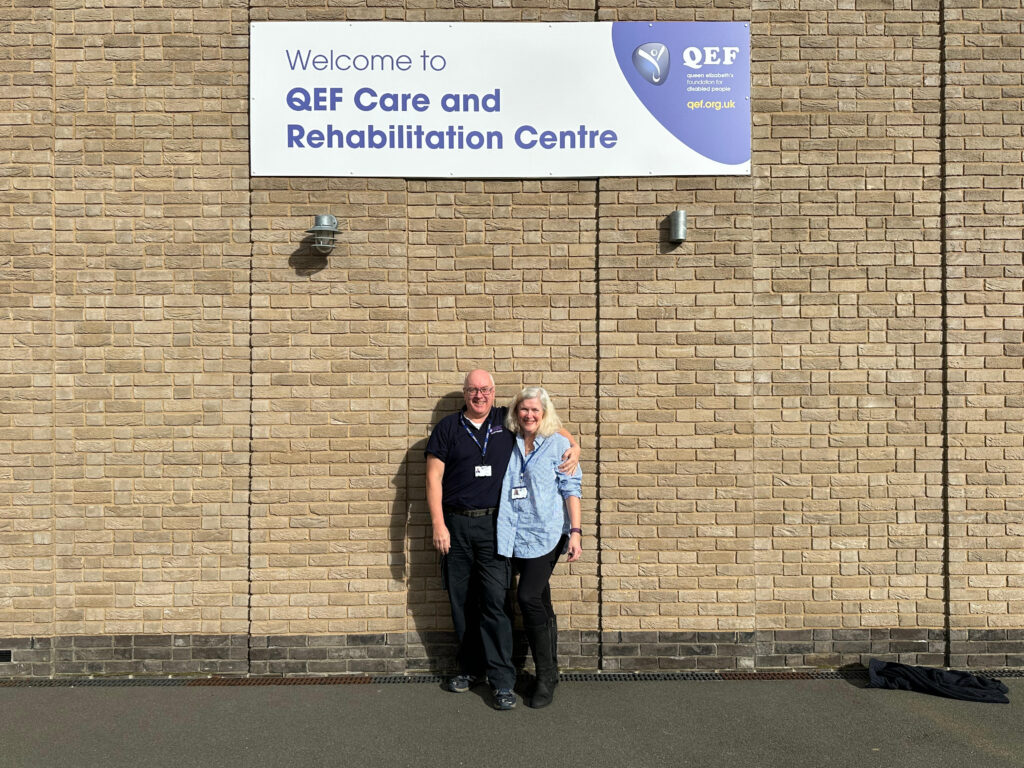 Helping people to travel independently on public transport
Helping people to travel independently on public transport
Amanda Beck, QEF’s HUBS Mobility Service lead, talks about how important it is to be able to support people when they can no longer drive.
The HUBS Mobility Service, which is funded by the Department for Transport, is one of several across the county that provide information and advice to keep people who don’t drive connected with their community, friends and family.
Amanda provides personalised information on accessible transport options and community groups to reduce social isolation and help each person to be independently mobile.
Can you tell us a bit about what the Hubs Mobility Service does?
The Hubs Mobility Service is an information and advice service for people who are considering retiring from driving or who don’t drive. It is open to people who have a disability or age-related condition and gives personalised advice on how to access their community, work or leisure pursuits through accessible transport or mobility equipment. This could be some advice on route-planning and travel concessions, or more complex work with an individual who is housebound and looking at what mobility provision could enable them to feel confident about getting out again. QEF were one of 7 Transport assessment centres in England piloting the scheme and now the Department of Transport are funding the service for 3 years and expanding to an additional 6 centres. Currently Hubs Mobility Service can advise clients in 6 South London Boroughs, Sutton, Merton, Croydon, Kingston, Richmond and Wandsworth as well as Surrey.
How can being independently mobile and getting back into the community help mental health?
It can improve someone’s mental wellbeing as they feel they have some control over their lives; being independently mobile enables each person to access their community, provides interaction and choices, it helps to reduce social isolation. It also opens the doors to new opportunities such as clubs and volunteering and helps people to feel involved and part of society.
What is one thing you wish more people knew about disability and travelling?
For disabled travellers to know that there is support information out there, it’s just not always easy to find. There is a big focus on online content which isn’t appropriate for everyone, but we can help people to find the information they need.
Being disabled and facing barriers to travelling independently can be incredibly isolating for some and have a negative impact on mental health. For example, Julie spoke to us about her experiences before using the Hubs Mobility Service and how before she came to us, she was housebound. It is so important for people to be able to get out into the community as independently as possible.
Journey planning, travel concessions, passenger assistance, travel support is available but it’s a bit of a mine field finding out about it. For other passengers – I wish people had more awareness of the challenges people face, be aware of non-visible disabilities, appreciate that disabled people travel to work too and have just as much right to access transport.
What will the new funding allow you to do?
It will ensure that the Hubs Mobility Service is embedded as part of overall Mobility Services offering, providing aftercare to people that can no longer drive. We will also be able to connect with more people in South London & Surrey that may not be aware of QEF but have accessibility challenges getting around. The pilot scheme showed the need for the service and now we can consolidate that work, providing more people with transport solutions that support their mental wellbeing by enabling each person to access their community and reduce social isolation.

